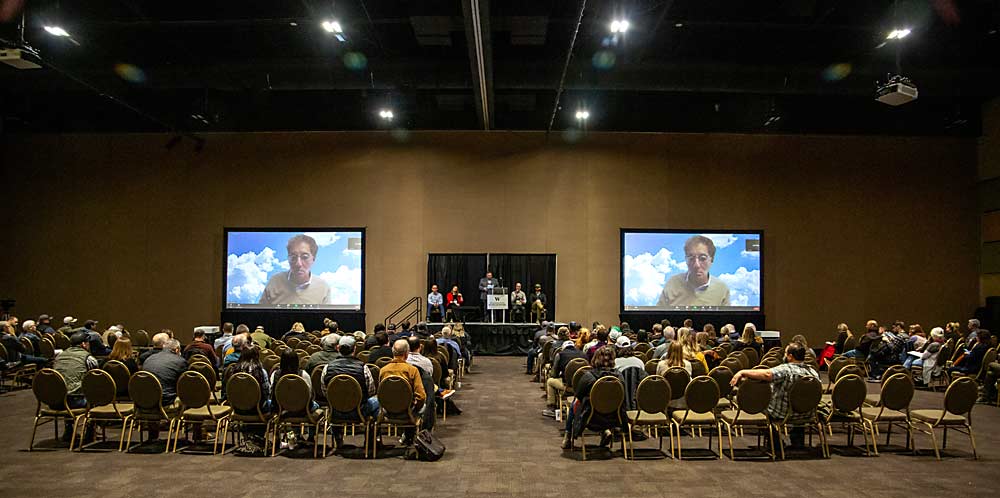
White wine demand is increasing. High-end wine consumers are spending more. And Washington State University’s new viticulture and enology department is launching efforts to boost the brainpower of the workforce.
That was some of the good news shared during the “State of the Industry” session that wrapped up WineVit, the annual meeting of the state’s wine grape industry, hosted by the Washington Winegrowers Association in February in Kennewick.
But there was some troubling news, too.
Washington faces a future with 10,000 to 15,000 uncontracted acres, said Adam Schulz, owner of Incredible Bulk Wine Co., a Richland-based brokerage company and an unofficial Pacific Northwest market analyst.
Over the next three years, long-term contracts for mostly red varieties are scheduled to end, Schulz said. With red wine demand dropping in the U.S., many of those contracts will not be renewed.
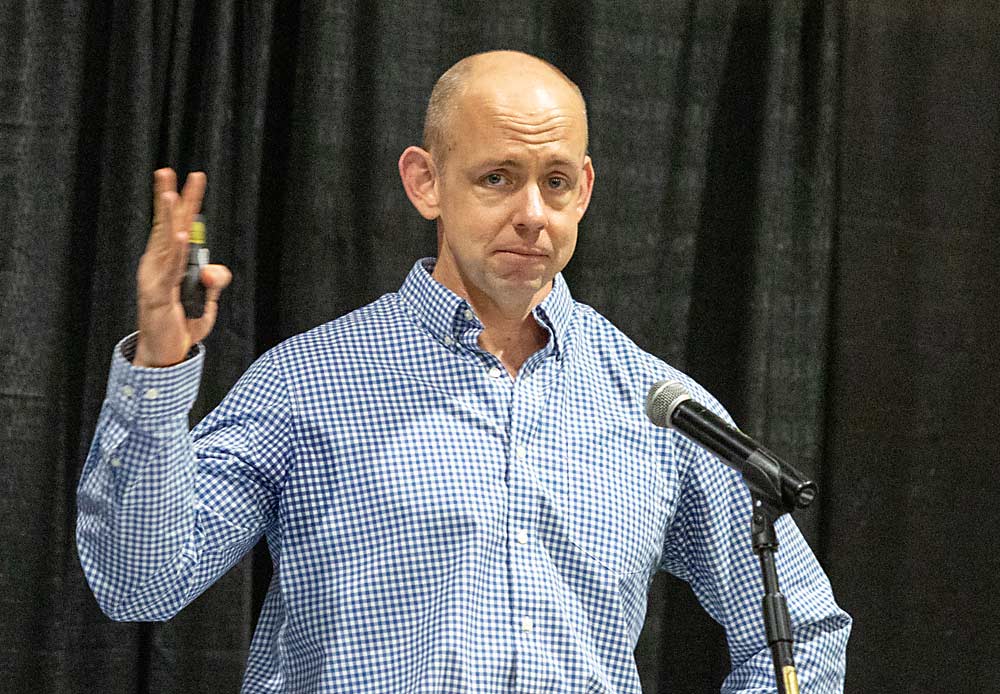
However, even that could turn out to be an opportunity, he said in the meeting and in a follow-up interview. California wineries have been showing increasing interest in Washington bulk wine and making Washington versions of their tried-and-true labels. There is even talk of a Pacific Coast American Viticultural Area that would allow California, Oregon and Washington producers to mix and match wine from the West Coast states, which is especially of interest given the rising risks of wildfire. California lawmakers require wines under their state label to be made with 100 percent California grapes.
“It also feels like we’re able to supply opportunities towards the future in ways that maybe California might not be as flexible or able to do,” he said.
Schulz also told the crowd that Pinot Noir grown in Washington and Northeastern Oregon is on the rise, and the vineyard industry is catching up with tree fruit when it comes to interest from outside investors.
Another welcome trend: “It feels like that seltzer wave has kind of crested and gone,” Schulz said. Some of those drinkers may be turning to white wine, the demand for which is increasing in America.
Other speakers during the session included Christian Miller, director of research for the Wine Market Council, a member-based wine market analysis company. He told the audience that, nationally, on-premise wine sales have not recovered completely from their sharp drop during the pandemic. Spirits and beer have recaptured that market faster.
Meanwhile, the overall wine consumer base is shrinking, with many people cutting back on alcohol completely, he said. However, the high-end consumers are steady and spending more, while surveys show consumers do understand organic or sustainable wine certification programs and are willing to pay a premium for them.
Jean Dodson Peterson of WSU asked the industry to expand its view of wine education, now that the university’s viticulture and enology program has been elevated to a full-blown department. She is the founding chair.
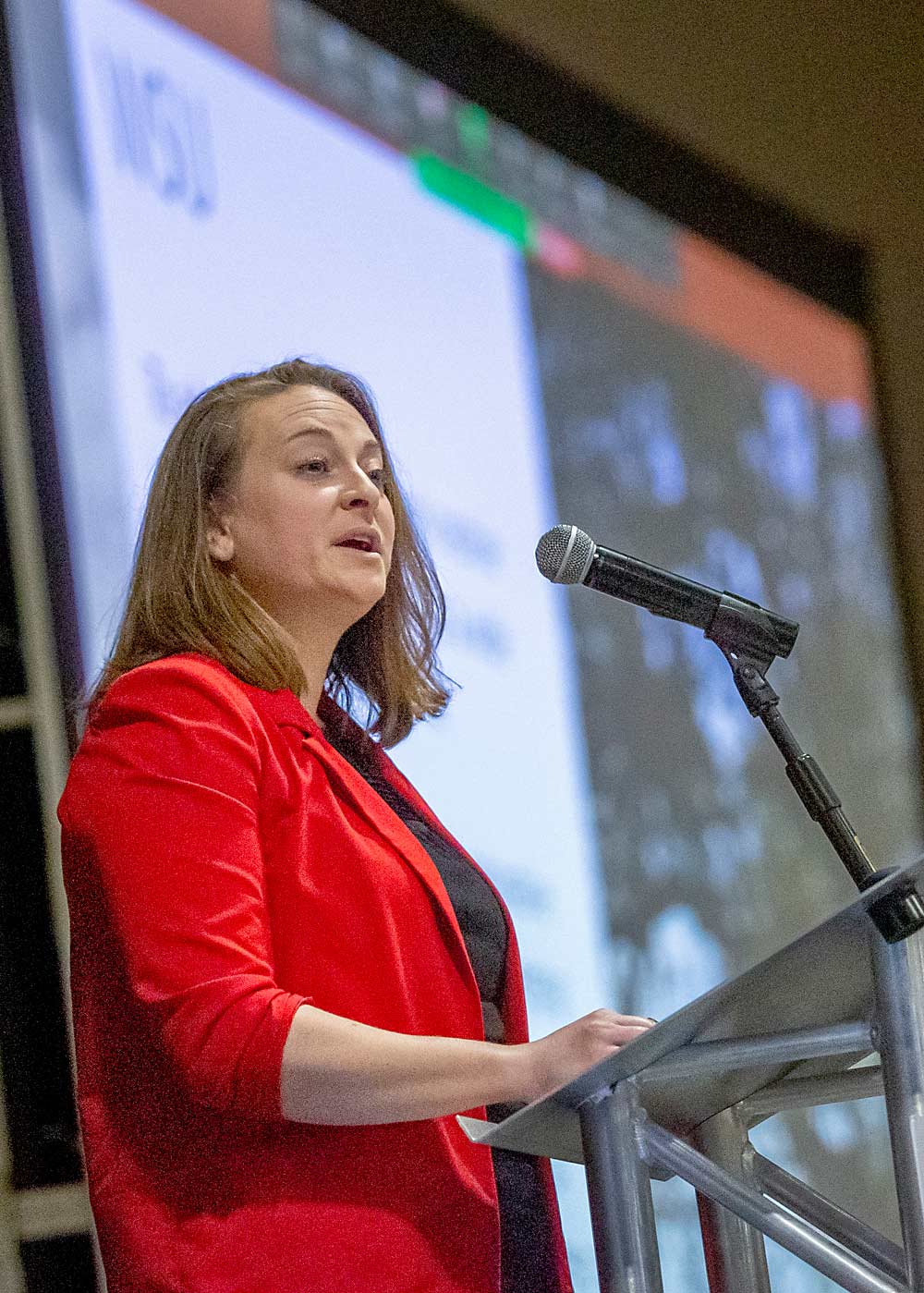
The department aims to expand hands-on laboratory offerings, increase class schedule flexibility, redevelop the Wine Science Center’s on-campus vineyard in Richland and upgrade greenhouses at the Prosser research station, she said. The campus also has started a student crisis fund to help keep students who face short-term financial struggles enrolled and attending classes.
Meteorologist Cliff Mass, speaking virtually, told the crowd that global warming is happening, and humans are causing some of it. But he said the threat it poses is often overstated.
“Global warming, climate change, is a manageable technical problem, and it’s not an existential threat to mankind,” said Mass, a professor at the University of Washington.
Natural weather variability explains the bulk of extreme weather phenomena, such as California’s recent flooding and the 2021 Northwest heat dome, he said. Human-caused climate change accounted for only a small nudge.
Meanwhile, snowpack in the Cascade Range has not changed much in the past 30 years, but it will lessen gradually this century, with precipitation falling more as rain, he said. That trend calls for more and larger reservoirs, he said, not panic.
JJ Williams of Kiona Vineyards discussed why he thought Washington’s new certification program for sustainable practices is worth the effort.
Sustainable WA certification required a lot of paperwork, but now that his family’s Red Mountain business is freshly stamped, Williams has a quick, clean way to answer questions he fields from buyers and journalists about sound production methods the business was already practicing. Now, he can spend more time on other important things, he said.
“We’re excited to be able to say, ‘Yes, here are the things we’re doing.’ The published standard is here,” he said. “And let’s go sell some more wine.”
—by Ross Courtney
Longtime Horse Heaven Hills supervisor named WineVit Grower of the Year
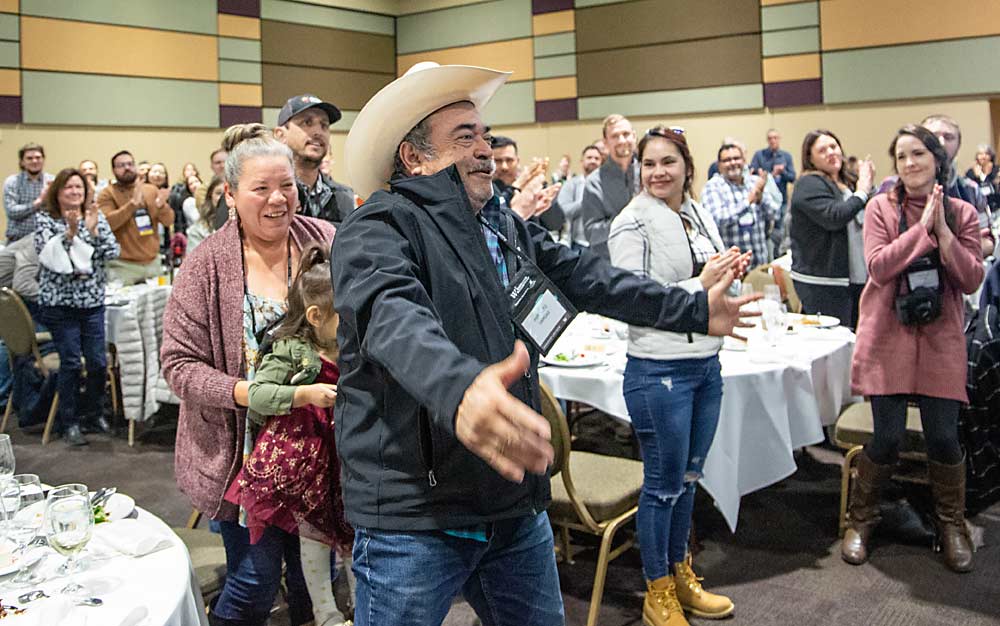
Hipolito Vargas, with 40 years as supervisor of Champoux Vineyards, was named the Erick Hanson Memorial 2023 Grower of the Year on Feb. 9 at the annual WineVit conference in Kennewick, Washington.
The previous winner, Todd Newhouse, presented the trophy and plaque, as well as a bottle of wine, as the final award of the concluding luncheon of the Washington wine industry’s annual meeting. Educational presentations in the morning focused on the wine industry’s economic conditions.
Vargas’ family, including two young granddaughters, were with him to celebrate. “I just want to say thank you, everybody, for giving me the chance to work with you,” he said in his only reception comments.
Vargas, a married father of five, nicknamed Polo, was touted by his colleagues for his upbeat attitude and uncompromising quest for quality in his four decades at the vineyard located in the Horse Heaven Hills growing area. They also lauded his communication ability, crew management skills and calm demeanor under pressure.
He’s also a cattle rancher and connoisseur of tequila.
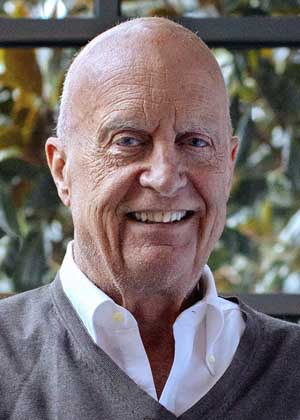
Allen Shoup, considered one of the fathers of Washington’s wine industry, was posthumously selected for the Lifetime Achievement Award. He died in November in Seattle.
The founder and managing partner of Long Shadows Vintners began his career at E. & J. Gallo Winery in Modesto, California, but came to Washington in 1979 to help build Chateau Ste. Michelle into a juggernaut.
He founded the Washington Wine Institute and the Auction of Washington Wines, and he helped create the Washington Wine Commission and the American Vintners Association. Shoup is also the founding chairman of the Association for Wine Accurate Research and Education, or AWARE, and received a lifetime achievement award from Sunset Magazine.
His son, Ryan, accepted the award on his behalf.
Thomas Henick-Kling, an enology professor at the Washington State University Wine Science Center in Richland, received the Industry Service Award.
Henick-Kling is known for his research into the role of yeast strains on wine flavor and how to avoid stuck fermentation. He earned his doctorate from the University of Adelaide in Australia and his master’s degree from Oregon State University.
The Grand Vin Award, honoring winemaking, went to Katie Nelson, vice president of winemaking for Chateau Ste. Michelle.
Ste. Michelle brought Nelson to Washington in 1999 as an enologist. She left the company only briefly from 2015–2018. She studied chemistry at Sonoma State University in California and cut her teeth as a crush intern in Healdsburg, California.
—Ross Courtney

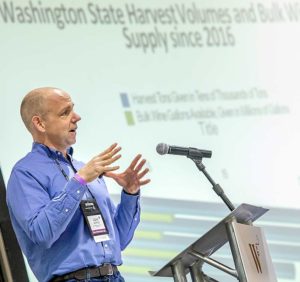
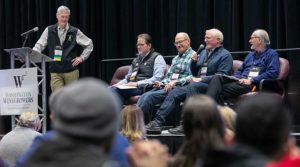




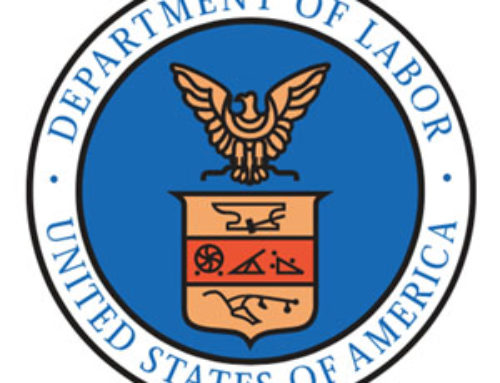
Leave A Comment